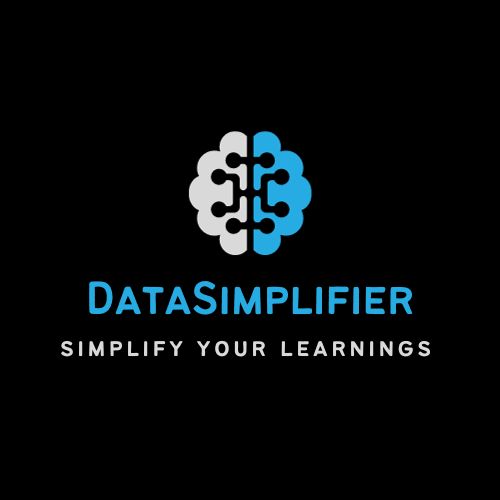Introduction
Embarking on your professional journey can be both thrilling and intimidating, especially when trying to craft a standout career objective for freshers. A career objective is more than just a line on your resume; it’s your first impression, the gateway to an interview, and a crucial chance to demonstrate your potential.(Career Objectives)

Whether you are joining the IT industry, banking sector, or any other exciting sector, an effective career objective for freshers with no experience is essential to catching the recruiter’s eye. It is not about writing down the skills you haven’t yet gained but portraying your enthusiasm, adaptability, and matching the organizational goals.
This ultimate guide covers everything from career objective examples to tailored tips for freshers across industries like IT, MBA, BPO, and more. By the end, you’ll be equipped with the knowledge and examples to create a winning career objective that secures interviews and opportunities.
Understanding the Career Objective
What is a Career Objective?
A career objective is a brief statement that introduces you, your career goals, and the value you bring to the table. For freshers, this is particularly important because it helps bridge the gap between your academic achievements and the professional world.
Think of it as your elevator pitch—concise, impactful, and tailored to the job. It is an opportunity to:
- Present your aspirations clearly.
- Highlight your enthusiasm for the role.
- Show recruiters that you are the right fit, even if you have limited experience.
Why is a Career Objective Essential for Freshers?

For freshers, a robust career objective can:
- Create a Good First Impression: Recruiters often scan through resumes quickly, and a well-crafted objective will catch their eye.
- Demonstrate a Fit for the Role: Tailored objectives reflect your understanding of the company’s requirements and how you can contribute.
- Overcome Lack of Experience: Highlight transferable skills, academic accomplishments, and learning potential.
How to Write a Career Objective
1. Begin with Self-Reflection
Ask yourself:
- What are my career objectives?
- How do I benefit the organization?
- What makes me a strong candidate for the position?
Understanding your strengths and aspirations will help you create a more authentic and impactful career objective.
2. Research the Job Role and Company
Every job is unique, and so should your career objective. Study the job description and identify keywords or phrases that resonate with the employer’s needs. For example, if the job emphasizes teamwork and problem-solving, ensure your objective reflects these qualities.
3. Keep It Concise and Targeted
Aim for 2-3 sentences that clearly convey your goals and what you bring to the role. Avoid generic statements like “Seeking a challenging role” without specifics.
4. Use Action-Oriented Language

Begin with dynamic words like “Aspiring,” “Driven,” “Motivated,” or “Dedicated.” These words reflect energy and commitment.
- Example: “Aspiring software engineer with a strong foundation in coding and a passion for developing innovative solutions.”
5. Highlight Your Value
Emphasize how your skills and traits can add value to the organization’s success.
- Example: “Motivated graduate with good communication skills, wanting to help deliver excellent customer experiences and streamline operations in a fast-paced BPO environment.”
Career Objective Examples for Freshers
General Examples
- “Enthusiastic graduate looking forward to transferring academic knowledge and versatility into a fast-paced working world.”
- “Detail-oriented proactive individual seeking challenging job positions to apply analytical and problem-solving skills effectively.”
IT Freshers
- “Tech-savvy graduate with certifications in Python and AWS, eager to contribute to innovative software development projects.”
- “Aspiring IT professional passionate about cloud computing and cybersecurity, ready to propel technological advancements at [Company Name].”
Banking Sector
- “Dedicated and analytical thinker with a strong foundation in finance, aiming to enhance customer satisfaction and operational excellence in banking.”
- “Ambitious graduate with knowledge of financial systems, eager to deliver exceptional service in the banking industry.”
MBA Graduates
- “Results-oriented MBA graduate specializing in marketing, passionate about driving innovation and growth.”
- “Dynamic MBA graduate specializing in operations, seeking to streamline organizational processes and achieve business objectives.”
Freshers with No Experience
- “Motivated learner and recent graduate, eager to apply theoretical knowledge to practical challenges and contribute to organizational success.”
- “Fresh graduate with strong teamwork and communication skills, seeking entry-level opportunities to kickstart a career.”
Tailoring Career Objectives for Different Fields
IT Companies
Focus on technical skills, certifications, and innovation.
- Example: “Dedicated IT graduate with a keen interest in AI and machine learning, ready to tackle complex challenges in a progressive organization.”
Banking Sector
Emphasize numeracy, attention to detail, and customer service skills.
- Example: “Analytical and detail-oriented graduate aiming to enhance financial operations and customer relationships in a reputable bank.”
MBA Graduates
Highlight leadership, problem-solving, and specialization.
- Example: “MBA graduate with specialization in finance, passionate about leveraging data-driven strategies to optimize business performance.”
Freshers with No Experience
Focus on transferable skills, adaptability, and eagerness to learn.
- Example: “Eager and flexible graduate looking for challenging assignments and growth opportunities in an exciting professional environment.”
Additional Tips to Craft Your Career Objective

- Match the Job Role: Customize each objective to the specific role and company.
- Focus on Key Skills: Highlight the most relevant skills for the position.
- Proofread: Ensure there are no grammatical errors or typos.
- Avoid Clichés: Avoid overused statements like “Looking for a challenging role in a reputed organization.”
Frequently Asked Questions (FAQs)
Q: How specific should my career objective be?
Your career objective should be specific enough to convey your goals but broad enough to fit the role and industry you’re targeting.
Q: Do I need to change my career objective for every job application?
Yes! Tailoring your career objective for each application significantly increases your chances of getting noticed.
Q: Can I include certifications in my career objective?
Absolutely. Mentioning relevant certifications adds credibility to your objective.
Q: What if I’m switching fields?
Highlight transferable skills and emphasize your adaptability and enthusiasm for learning the new field.
Conclusion
A great career objective can make all the difference in standing out among countless resumes. It’s not just about what you want—it’s about how you can contribute to the company’s success and align with its goals.
Congratulations! You’ve completed this guide. To gain exclusive career tips, job notifications, and a supportive network, join our premium Telegram community for free by commenting your Telegram ID below.
With the insights and examples shared in this guide, you’re now ready to craft a career objective that opens doors to interviews and opportunities. Take the first step today and let your career soar!
Share the post with your friends

1 thought on “Career Objectives for Freshers: Proven Examples to Impress Employers Instantly”